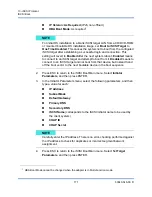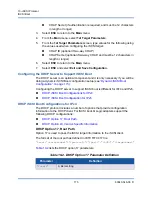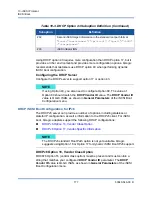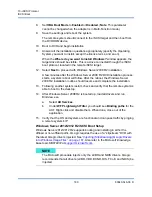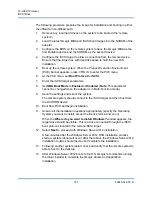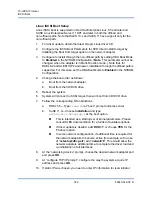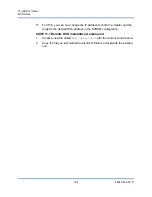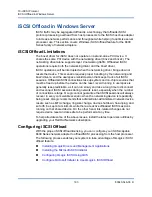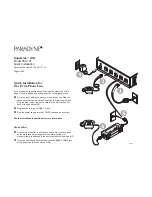
10–iSCSI Protocol
iSCSI Boot
179
83840-546-00 D
Windows Server 2008 R2 and SP2 iSCSI Boot Setup
Windows Server 2008 R2 and Windows Server 2008 SP2 support booting and
installing in either the offload or non-offload paths.
The following procedure prepares the image for installation and booting in either
the offload or non-offload path. The following procedure references Windows
Server 2008 R2 but is common to both the Windows Server 2008 R2 and SP2.
Required CD/ISO image:
Windows Server 2008 R2 x64 with the QLogic drivers injected. See
“Injecting (Slipstreaming) QLogic Drivers into Windows Image Files” on
page 187
. Also refer to the Microsoft knowledge base topic KB974072 at
.
Other software required:
Bindview.exe
(Windows Server 2008 R2 only; see KB976042)
Procedure:
1.
Remove any local hard drives on the system to be booted (the “remote
system”).
2.
Load the latest QLogic MBA and iSCSI boot images onto NVRAM of the
adapter.
3.
Configure the BIOS on the remote system to have the QLogic MBA as the
first bootable device, and the CDROM as the second device.
4.
Configure the iSCSI target to allow a connection from the remote device.
Ensure that the target has sufficient disk space to hold the new O/S
installation.
5.
Boot up the remote system. When the PXE banner appears, press CTRL+S
to enter the PXE menu.
6.
At the PXE menu, set
Boot Protocol
to
iSCSI
.
7.
Enter the iSCSI target parameters.
NOTE
The Microsoft procedure injects only the eVBD and NDIS drivers. QLogic
recommends that all drivers (eVBD, VBD, BXND, OIS, FCoE, and NDIS)
be injected.
Refer to the
silent.txt
file for the specific driver installer application
for instructions on how to extract the individual Windows 8400/3400
Series drivers.
Summary of Contents for 8400 Series
Page 390: ......







